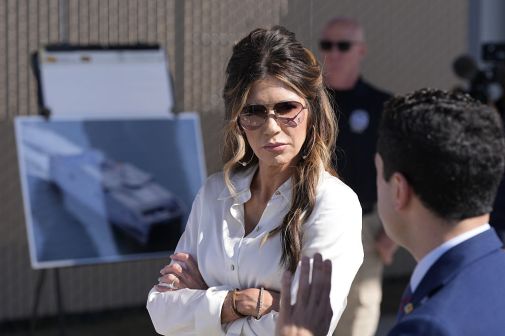Hillary Clinton’s emails: Emblematic of larger issues?
Open government advocates say recent reports that Hillary Clinton conducted business as secretary of State using a personal email account could point to an intrinsic problem within the upper echelons of the federal government.
“If it was something that Hillary Clinton did or was able to do, and wasn’t told to stop, then presumably a lot of others are doing it too,” John Wonderlich, policy director of the Sunlight Foundation, told FedScoop. “So, it’s something we need to worry about fixing.”
The New York Times first reported Monday that Clinton did not have a federal government email while she served at the helm of the State Department until 2013. Instead, she used her own email. Whether that account had any security protections attached remains unclear.
According to the report, Clinton staff had not moved to preserve the former secretary’s email records until two months ago.
“It wasn’t just a sideline route for a certain conversation or choosing not to put things in writing,” Wonderlich said. “It was opting out entirely of the official email channel in order presumably to persevere control of what got released — and how and when.”
Wonderlich, who wrote a blog post about the news, said Freedom of Information Act requests, inspector general investigations and congressional oversight require access to information, including emails.
Clinton is not the first to avoid using an official government email. The New York Times notes that her predecessor Secretary Colin Powell used personal email. Also, former EPA Administrator Lisa Jackson came under fire for using a private EPA email under the alias Richard Windsor. And also in the news was controversy surrounding the loss of emails sent to and from former IRS Exempt Organization Chief Lois Lerner.
In a release, the National Archives and Records Administration quoted Archivist of the U.S. David Ferriero’s testimony in September 2013, saying the agency “discourages the use of private email accounts to conduct Federal business, but understands that there are situations where such use does occur.” It also said it reached out to the State Department to ensure its records are properly managed.
At issue is compliance with the 1950 Federal Records Act, which requires agencies to preserve records that document their organization, procedures and essential transactions. The law was updated late last year to codify a 2013 guidance regarding the treatment of emails.
National Security Archive FOIA Project Director Nate Jones told FedScoop that even before the update to the Federal Records Act, Clinton’s records should have been archived.
“Even though there wasn’t guidance from NARA, the law is pretty clear that records of official business — which those are — should have been preserved by the agencies,” Jones told FedScoop. And using a private email is “certainly not a best practice,” he said.
At the same time, Jones suggested that a private email account might be better at keeping track of records than the federal government’s own systems. He said currently officials at many agencies print and file their critical emails for the National Archive’s records. Though, he noted that is changing as the National Archives continues to enact its Capstone program to immediately archive correspondence of key agency officials. National Archives did not reply to a request for the number of agencies taking advantage of that program.
Going forward, Wonderlich said he thinks all Cabinet secretaries will face questions about whether they use official email.
“Because if the answer is no, we’re going to have to figure out how to change that,” he said. He called for legislative reforms that give the National Archives stronger powers to make clear guidelines, and increase its investigative and enforcement authority.
Meanwhile, Wonderlich said he hopes the issue won’t be mired in partisan talk.
“There’s going to be a lot of political discussion,” Wonderlich said. “But I hope that political discussion is going to translate into the reform discussion we need.”






